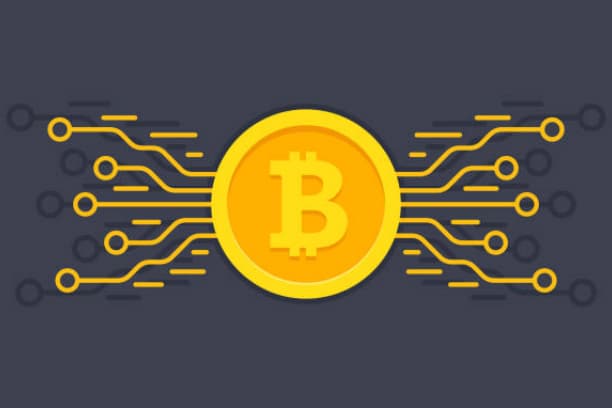What does a cashless society look like?
A cashless society, as the name suggests, means that people no longer rely on physical cash for transactions in their daily lives. This change will revolutionize our traditional payment methods and lead to the application of many emerging technologies, such as mobile payment, digital currency and blockchain technology. With the advancement of technology, more and more countries are moving towards a cashless society, and Taiwan is no exception. In this article, we will discuss the current situation, challenges and future development of cashless society to help you better understand the impact of this trend on your life.

What is a cashless society?
A cashless society means that in everyday life, the circulation of money no longer relies on paper money or coins, but rather transactions are conducted through electronic payment systems, digital money or mobile payments. Such payment methods include credit cards, mobile payment apps (e.g. Apple Pay, Line Pay), online bank transfers, and even cryptocurrencies supported by blockchain technology. Simply put, a cashless society eliminates the need for people to carry physical cash, and allows transactions to be completed through digital devices and the internet.
In such a society, e-payment not only enhances the efficiency of transactions, but also helps to minimize security risks in the circulation of cash, such as robbery or loss. According to financial regulators, the mobile payment penetration rate in Taiwan continues to climb, indicating a growing acceptance of cashless payments.
Advantages and Challenges of a Cashless Society
Advantage:
The cashless society has brought a lot of convenience to consumers and merchants. Electronic payment systems often have the advantage of instant settlement, eliminating the need to wait for cumbersome bank processing times and making transactions faster. Consumers' spending records can also be digitized, making it easier to manage finances and track expenses.
For merchants, cashless payments can dramatically improve transaction efficiency, reduce cash management and storage costs, and open up more opportunities for online transactions. Especially in the context of the growing popularity of cross-border e-commerce, digital payment breaks through the limitations of geography and time, allowing business activities to become more globalized.
Challenge:
A cashless society is not without challenges. On the one hand, the popularization of digital payment technology requires the public to have a certain level of digital literacy, especially the elderly and some groups that are more conservative in the use of technology may face difficulties in adaptation. On the other hand, with the popularization of digital payment, network security has become an increasingly prominent issue. Hacking attacks, personal data leakage and other risks are all issues that require serious attention in the digital payment system.
The Role of Blockchain and Digital Currency in a Cashless Society
In a cashless society, the emergence of blockchain technology and digital money provides more payment options and brings higher security. As a decentralized distributed ledger technology, blockchain ensures the tamperability and transparency of transaction data. This makes the blockchain has great application potential in payment, finance, logistics and other fields.
Digital currencies, especially cryptocurrencies (e.g. Bitcoin, Ether, etc.), are becoming a new type of payment tool. These currencies do not rely on the traditional banking system and often have lower transaction costs and faster settlement speeds. Financial institutions and government agencies around the world are actively exploring ways to integrate digital currencies into their existing financial systems.
In Taiwan, the gradual acceptance of digital currency and the acceptance of Bitcoin payments by some major merchants signals the gradual arrival of a cashless society.
The Present and Future of Cashless Society in Taiwan
Taiwan has made remarkable achievements in promoting a cashless society. According to the latest statistics, Taiwan's mobile payment market is undergoing rapid growth, and digital payment platforms such as Line Pay and Street Pay have become one of the main tools for people's daily transactions.
The government has also been actively promoting relevant policies to encourage the use of electronic payment systems. For example, Taiwan's financial regulators are gradually improving their regulations on electronic payment platforms and opening up more means of payment so that the public can make payments more conveniently. Taiwan's pace in promoting a cashless society is relatively fast, and the realization of a cashless society in the next few years is no longer an unattainable dream.

Future Outlook:
In the future, Taiwan is expected to become an important example of cashless society in the world. With the further development of blockchain, digital currency and artificial intelligence technologies, the cashless society will enter a new stage where payment methods will be more diversified, convenient and secure. In addition, the promotion of cashless society will also bring more innovative applications, such as smart contracts, decentralized finance (DeFi) and other emerging areas, which will change the way the global financial system operates.
How to prepare for a cashless society?
For the general public, preparing for a cashless society is not difficult. The first step is to understand and master digital payment tools. Learning how to use mobile payment apps, e-wallets, and credit card payments will help you better integrate into the cashless society. Here are some simple steps:
- Download and register Mobile Payment AppFor example, Line Pay, Apple Pay or Google Pay are all platforms that offer easy payment methods for both online and brick-and-mortar purchases.
- Managing Funds with ePurse: The eWallet not only stores cash, but also manages digital currency, e-tickets and other assets.
- Protecting the security of personal information: With the popularity of digital payment, network security has become an important issue. Using strong passwords, enabling dual identity verification, and regularly checking the transaction history of your payment account can effectively minimize the risk.
Frequently Asked Questions Q&A
Q1: Will a cashless society affect the popularity of cash transactions?
A1: Although cash transactions are gradually being replaced by the development of a cashless society, cash still has a place in certain areas, for certain age groups and in special circumstances. Cashless payment does not mean that cash will disappear completely, but will become a supplementary payment method.
Q2: Can cryptocurrency replace traditional money?
A2: At present, the development of cryptocurrency is still characterized by uncertainties, including high price volatility and regulatory issues, which makes it difficult to completely replace traditional currencies. However, with the advancement of technology and the improvement of regulatory policies, the application of cryptocurrency in specific areas still has potential.
Q3: How to choose the most suitable digital payment platform?
A3: You can choose a digital payment platform according to your needs. For example, if you frequently use a particular store or service, you can choose a payment tool supported by that store. If security and privacy are important, you can consider using a payment system with strong encryption protection.














